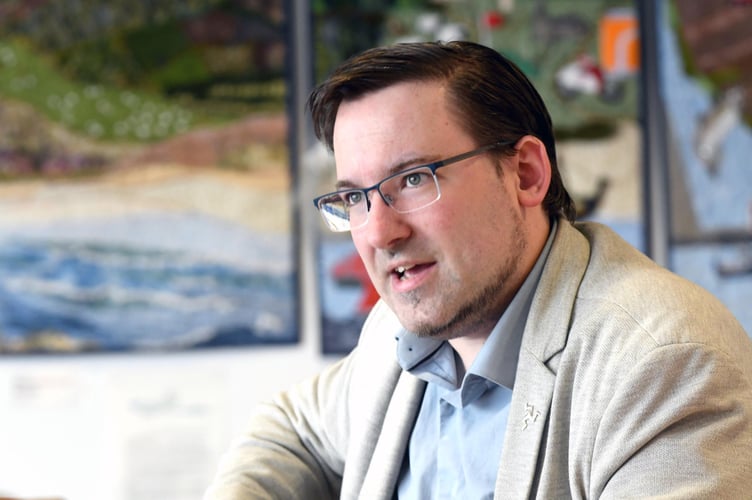Health Minister Lawrie Hooper has confirmed that the Department of Health and Social Care (DHSC) are looking to implement a shingles vaccine for island residents ‘in the coming weeks’.
In response to a written question, Mr Hooper states that the DHSC have been in collaboration with Manx Care and Public Health to ‘scope’ the funding, resources and infrastructure required to offer the programme in the island.
Shingles is caused by the herpes varicella-zoster virus, which also causes chickenpox. Shingles itself is the reactivation of an infection of a nerve and the area of skin that it serves, resulting in clusters of painful and itchy blisters.
In his answer, Mr Hooper said: ‘The vaccination programme in the island will be in line with the latest (September 2023) recommendation of the Joint Committee on Vaccination and Immunisation (JCVI) in the UK.
‘These recommendations state that the vaccine should be offered to all severely immunosuppressed (those with poor immune systems) from 50 years of age.
‘It also states that the vaccine should be offered to immunocompetent individuals who will become eligible from 60 years of age in a phased implementation over a 10-year period, starting with those turning 65 and 70 years of age.
‘Manx Care is now working on its plan to mobilise this refreshed Shingles vaccination programme, and we hope to see that being rolled out in the coming weeks. All of this work forms part of a broader screening and vaccinations programme assessment on the island.’
Mr Hooper also states that statistics on the amount of people with shingles in the island is not available, but offered statistics from the National Institute for Health and Care Excellence (NICE) in the UK as an alternative.
According to NICE, the overall annual incidence in the UK is estimated to be 1.85 to 3.9 cases per 1,000 population, increasing with age from less than two cases per 1,000 in people younger than 50 years to 11 cases per 1,000 in people aged 80 years or older.
Talking about shingles, Mr Hooper commented: ‘It can be very painful and tends to affect people more commonly as they get older.
‘Most people recover fully, but for some, the pain goes on for several months or even years – this is called post-herpetic neuralgia (PHN).
‘The risk and severity of shingles is considerably higher amongst severely immunosuppressed individuals. The vaccination reduces the risk of getting shingles and PHN.’



-(1).jpeg?width=209&height=140&crop=209:145,smart&quality=75)

Comments
This article has no comments yet. Be the first to leave a comment.